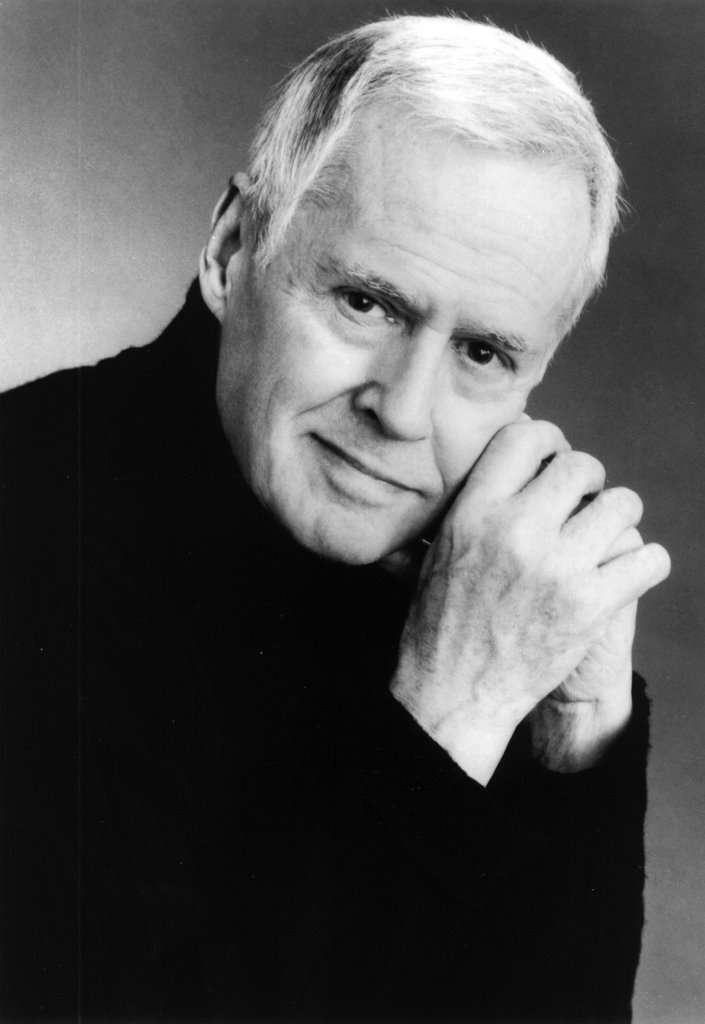Boston Opera Collaborative provides a fresh take on Rorem’s “Our Town”
The birth of an operatic version of Thornton Wilder’s Our Town is famous for its might-have-beens. Wilder turned down offers from both Aaron Copland and Leonard Bernstein, afraid that too much would be lost in translation. The playwright might not recognize all of his work in Boston Opera Collaborative’s production of Ned Rorem’s Our Town, but what emerged Saturday evening was an ambitious and aptly unsettling undertaking.
Our Town‘s plot is fairly simple. Boy (George Gibbs) meets girl (Emily Webb) in a small twentieth century American town. They fall in love, get married—and then Emily dies in childbirth. In the last act, Emily, now among the dead, has a chance to look back on her life and relive certain moments. She decides to relive one of her birthdays, but stops when the experience proves too painful. In contrast to the simple plot, Wilder employed theatrical devices considered radical at the time, such as direct audience addresses and nonlinear arrangement of events, thereby preventing sentimentality from seeping into what is a potentially sappy story. Boston Opera Collaborative’s production was faithful to this intent, and employed several artistic choices that tilted the work towards Wilder’s unsentimental side.
The most notable of these choice was to use only a piano to accompany the singers. This results in a loss of Rorem’s warm orchestral palette, as well as crucial support for voices in more than one passage. But compensation was provided with a powerful sense of spareness and silence. In the last act, there are no strings to gently buoy the dead in their resting place. The small Modern Theatre at Suffolk University was the appropriate size for the sound of a single piano, whose chords sounded at times like a lullaby, at others like a death knell.
Boston Opera Collaborative fielded a strong ensemble cast. Both George and Emily, the central couple of the opera, were played by singers who captured the characters’ freshness and youth. Mark Williams’ boyish demeanor and light, warm tenor were entirely apt for the role of George Gibbs. Laura DellaFera sounded effortlessly young with her pure soprano, but she was also capable of delivering the crucial dramatic moments.
Perhaps the most stylish singing of the night came from mezzo-soprano Sophie Michaux and Steven Myles. Myles’s character, the tormented Mr. Stinson, laments the lack of music in the provincial small town, and Myles’s suave and heartfelt phrasing made this complaint believable. Michaux’s Mrs. Soames is as vivacious in life as she is enervated in death, and the transformation in Michaux’s performance was chilling.
Jacob Scharfman brought a rich, ringing baritone and occasional roughness to Mr. Webb. Felicia Gavilanes’ clear soprano was used to great effect in the last act, especially in her plaintive but unheeded warnings to Emily. Shannon Grace was a maternal Mrs. Webb, and Colin Ruffer was a magisterial Dr. Gibbs.
The crucial role of the Stage Manager, who narrates and directs the proceedings, was taken by a soprano rather than a tenor, as in the original. Jenny Searles Margulies, dressed in a suit and with neatly coiffured hair, was smiling and solicitous, almost like a hotel receptionist. In her interpretation, questions of agency are avoided; the Stage Manager is not omniscient; she merely explains how things are. Margulies was not completely successful in negotiating Rorem’s challenges, a situation made more daunting by the lack of orchestra, but she accomplished much with her clear soprano, including some boldly floated high notes.
Would Wilder have found all of his play in this opera? Perhaps he would be pleased by how Rorem transformed the chorus from an obedient church choir to a raucous wedding crowd, and finally to the subdued, zombie-like dead. We’ll never know, but Rorem’s musical language strongly makes the case for an operatic treatment and was well served by Boston Opera Collaborative’s thoughtful staging.
Our Town will be repeated 3 p.m. Sunday and 7:30 p.m. Thursday and Friday. bostonoperacollaborative.org
Posted in Performances
